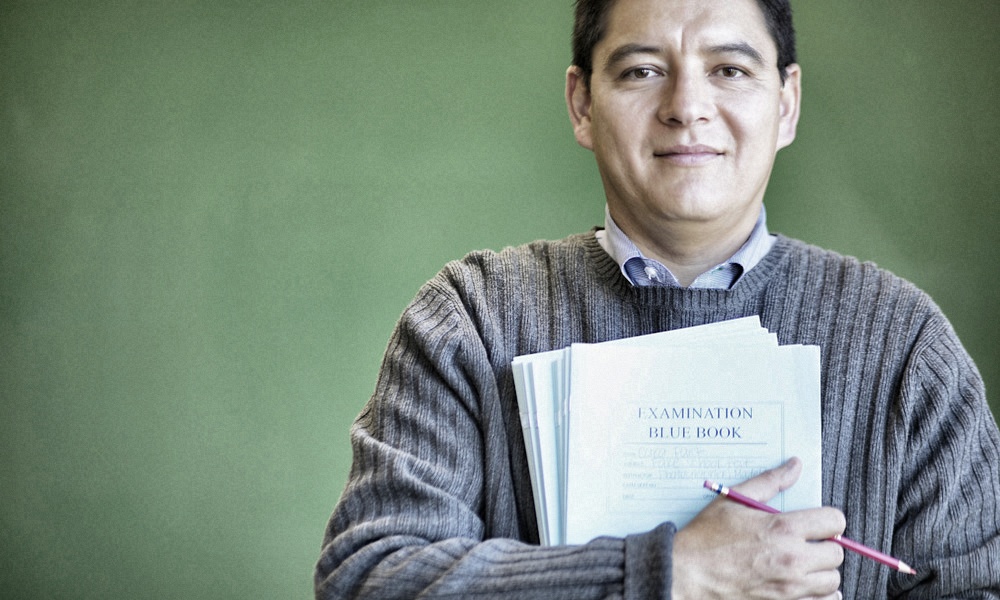
Teachers Group Seeks Bar-like Exam
In an effort to standardize credentials for the teaching profession, the American Federation of Teachers has proposed a new, more rigorous entry exam.
If a new proposal by the American Federation of Teachers is adopted, men and women looking to enter the profession would soon be taking something like a national bar exam.
“It’s time to do away with the common rite of passage into the teaching profession,” Rani Weingarten, president of AFT, said in a statement. “Newly minted teachers are tossed the keys to their classrooms, expected to figure things out, and left to see if they and their students sink or swim.”
Newly minted teachers are tossed the keys to their classrooms, expected to figure things out, and left to see if they and their students sink or swim.
In a recent report, “Raising the Bar—Aligning and Evaluating Teacher Preparation and the Teaching Profession” [PDF], AFT’s Teacher Preparedness Task Force recommends three changes to improve the field:
- Alignment and coherence of standards, assessments, and programs
- A universal, rigorous entry assessment
- An oversight organization, made up of those in the profession, to set and enforce standards
The exam has received the most attention since the report was released.
“It’s intended to be more rigorous than [and replace] the Praxis [Series tests—teacher certification exams, designed and administered by the Educational Testing Service],” said Francine Lawrence, AFT’s executive vice president.
Along with content knowledge, the exam would assess aspiring teachers on their ability to transmit that knowledge to students, she said.
“We’ve done surveys of teachers who have entered the profession over recent years and a majority said they didn’t feel well prepared entering the classroom,” said Lawrence. “In terms of…classroom management, it’s about how do you navigate a classroom of students so that they have the opportunity to effectively learn?”
The National Board for Professional Teaching Standards will work with AFT to bring together all the necessary parties, including the federal government, education associations, and state-licensure organizations, to help design the standards and exam.
“The importance [of having all these groups involved] is that if it’s universal, no matter where someone’s being prepared, and no matter where they begin and continue their teaching career, there is some universality to what’s expected,” said Lawrence.
While the framework for the standards overhaul is in place, Lawrence expects the process to take several years.
“There’s a tremendous amount of work,” she said. “But it’s critical that we get about it so that we reach the goals over a few years, because it’s only fair to our students that the best prepared teachers are coming into the profession.”
(Jack Hollingsworth/Photodisc/ThinkStock)






Comments